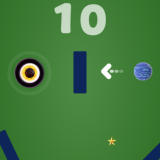Okay, so picture this: you're grinding away in EA Sports FC 26, finally climbing the ranks, and suddenly...BAM! You're banned. For using a VPN? Yeah, that's been happening. And it's causing quite a stir in the gaming community. I mean, who knew a simple tool to protect your privacy could get you booted from your favorite virtual soccer field? Actually, that's not quite right. It's not just about privacy, is it?
Here's the thing: VPNs, or Virtual Private Networks, are like digital cloaking devices. They mask your IP address, making it appear as though you're connecting from a different location. This can be super useful for a bunch of reasons – bypassing geo-restrictions to watch that show not available in your country, for example. Or, you know, keeping your online activity a bit more private from prying eyes (and let's be honest, who isn't trying to snoop these days?).
But, and this is a big but, using VPNs in online games is a bit of a gray area. It's not always malicious, but it can be exploited. Let's dive into why EA Sports FC 26, and other game developers, are cracking down. You might be wondering if using a VPN is cheating, and it's a valid concern.
Why the Ban Hammer? VPNs and EA Sports FC 26
The main reason EA and others frown upon VPN use is simple: unfair advantages. Think about it. If you're in a region with a slower server, you could use a VPN to connect to a faster server in another region. This lowers your ping which gives you a definite leg up in reaction time. In a competitive game like FC 26, milliseconds matter.
And then there's the market manipulation angle. In games with auction houses or marketplaces (like FC 26's Ultimate Team), VPNs can be used to access regions with different prices, artificially inflating or deflating the value of in-game items. Not cool, right? It messes with the game's economy.
I've got to admit, this part fascinates me. The lengths people will go to get an edge in a game! It's a reflection of human nature, I suppose. But, you know, there are also legitimate reasons for using a VPN. Maybe you're playing from a country with heavy censorship, or you just want that extra layer of security. So, where do we draw the line?
The Legitimate Use Cases
Let me try to explain this more clearly. Not everyone using a VPN is a cheater. Some players use them to protect themselves from DDoS attacks – where malicious actors flood their internet connection with traffic, effectively knocking them offline. This is a real concern, especially for streamers or high-profile players. A good VPN can hide your IP address, making you a less attractive target.
Also, consider players who travel frequently. They might want to access the game from different countries, and a VPN allows them to do so without triggering security alerts. Or, and this is a big one, some people just value their privacy! They don't want their ISP (Internet Service Provider) tracking their every move online, and a VPN helps with that. I keep coming back to this point because it's crucial: intent matters.
But EA's policy is pretty clear and they are within their rights to enforce it. After all, running a popular online game is a complex technical endeavor and it's up to the organization to set their own rules. Now, this doesn't mean all hope is lost if you get banned. You can always appeal the decision, explaining your situation and providing evidence of your legitimate VPN use. But be prepared for a potentially uphill battle.
Avoiding the VPN Ban: What You Need to Know
So, how do you avoid the ban hammer? First and foremost, read the game's terms of service! I know, it's tedious, but it's crucial. Understand what's allowed and what's not. If VPNs are explicitly prohibited, then you know the risks.
If you choose to use a VPN, make sure it's a reputable one. Free VPNs are often riddled with malware or sell your data to third parties. Not ideal! A paid VPN service is generally more secure and reliable.
And most importantly, don't use a VPN to cheat! Don't try to exploit regional differences or gain an unfair advantage. Play fair, and you're far less likely to get flagged.
Actually, this situation reminds me of a friend of mine. He was playing another popular online game, and he used a VPN to access a server in Europe because his friends lived there. He wasn't trying to cheat; he just wanted to play with his buddies. He got a warning from the game developer, but after explaining his situation, they lifted the restriction. Honesty goes a long way, it seems. Make sure to read up on the new playstation system update.
But there's something even more interesting here: the cat-and-mouse game between game developers and VPN users. As developers get better at detecting VPNs, users find new ways to bypass those detections. It's an arms race, and it's unlikely to end anytime soon.
If you are concerned about your location make sure to check out the top best online pc games.
FAQ: VPNs and Gaming Bans
Will using a VPN always get me banned from EA Sports FC 26?
Not necessarily. It depends on how you're using the VPN. If you're using it to circumvent geo-restrictions and access content you wouldn't normally be able to see, or to protect your privacy without gaining an unfair advantage, you might be okay. But if you're using it to manipulate the game's economy, gain a competitive edge, or engage in other forms of cheating, then you're definitely putting yourself at risk. EA's terms of service are the ultimate guide here.
How can EA Sports FC 26 detect that I'm using a VPN?
Game developers use a variety of techniques to detect VPN usage. One common method is IP address blacklisting. They maintain lists of known VPN server IP addresses and block connections from those addresses. They can also analyze your network traffic for patterns that are characteristic of VPN usage. Sophisticated methods include analyzing ping times from connections and matching them against known data centers.
What should I do if I've been wrongly banned for using a VPN?
The first step is to contact EA's support team and explain your situation. Provide any evidence you have to support your claim that you were using the VPN for legitimate purposes and weren't trying to cheat. Be polite and persistent, and hopefully, they'll be willing to investigate. It also helps to have a clean record – if you've been banned before for other offenses, it's less likely they'll give you the benefit of the doubt.
Isn't privacy a good enough reason to use a VPN while gaming?
It's definitely a valid reason! But game developers often prioritize competitive fairness and the integrity of their game's economy over individual privacy concerns. It's a tough balancing act. While they might not explicitly ban VPN usage for privacy reasons alone, they may still take action if they suspect you're using it to circumvent their rules in other ways. You have to weigh the risks and benefits.
So, there you have it. The VPN situation in EA Sports FC 26 is complex, with no easy answers. It's a matter of understanding the risks, knowing the rules, and playing fair. And maybe, just maybe, hoping that EA will cut you some slack if you're just trying to protect your privacy or play with your friends across the pond. The frustrating thing about this topic is, like many things in tech, the lines are only getting blurrier.
- First important point about the content
- Second point with detailed explanation
- Another noteworthy detail
- Final concluding thought






















































